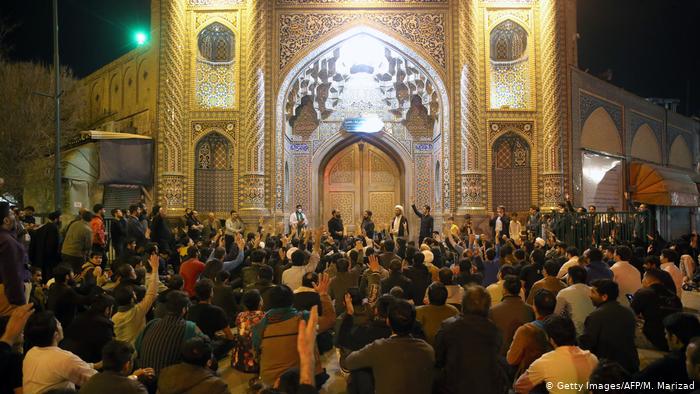Nasr Hamed Abu Zaid got his wish: He died in his home country, Egypt, not in exile as he once feared. Abu Zaid passed away in a Cairo hospital on Monday where he was receiving treatment for the past few weeks.
The renowned Islamic scholar had contracted an unknown virus last month during a routine visit to Indonesia, where he had recently co-founded the International Institute for Quranic Studies, a project dedicated to promoting tolerance, pluralism and critical thinking in the Islamic world.
Towards the end of his visit, Abu Zaid developed a fever and returned to Egypt where he was admitted to Sheikh Zayed Hospital in 6 October City. According to his doctors, he was diagnosed with a brain illness, which was kept secret because his wife feared that religious fundamentalists would gloat over the news.
Perhaps she was right. When Abu Zaid died, the Muslim Brotherhood announced on its website the “death of one of the most obdurate secularists in Egypt.” The group’s reaction was outrageous, though unsurprising coming from an organization that believes it possesses the absolute truth, and treats Abu Zaid’s ideas as a menace to its clerical-like authority.
Abu Zaid’s tragedy is emblematic of a larger crisis in twentieth-century Arab culture. Far from being an apostate as the fundamentalists described him, he simply raised new questions about Islamic texts by employing critical approaches in hermeneutics, discourse analysis, linguistics, and the sociology of knowledge. With these analytical tools he offered novel readings of classical religious sources. His opponents, seemingly caught off-guard, considered Abu Zaid to be crossing a red line into forbidden territory.
Abu Zaid joined the company of other twentieth-century Egyptian intellectuals–Taha Hussein, Mostafa Abdel Raziq, Mohamed Ahmed Khalafallah–who fought similar battles and ultimately failed to take on their opponents. Some renounced their previously-held ideas, while others tried to moderate them so as to seem less antagonistic to religious conservatives.
Following the backlash over his scholarship, Abu Zaid spent 15 years in exile until his death. The experience almost pushed him to become an Islamic preacher, as he continuously struggled to affirm his belief in Islam. However, he would end up teaching Islamic Studies in the Netherlands where his original project to offer a new interpretation of the Quran was undoubtedly hampered.
Abu Zaid always felt vexed by the molds that society had reserved for him in both his home and adopted countries. In Egypt, he was the critic attempting an unacceptable interpretation of a religious text, while in the West he was the defender of true Islam. Fearing he would be hailed in Europe as a “persecuted Islamic thinker”, Abu Zaid always insisted that he was a researcher, not a propagandist, and that he considered it his mission to “fight ignorance, superstition and falsehood” wherever he was.
Interestingly, Abu Zaid had spent much of his life escaping destinies that others wished to impose on him.
His father–an admirer of the early twentieth-century Islamic modernist Mohamed Abduh–wanted his son to become an Azhar-trained preacher. When his father fell ill, Abu Zaid had to work instead to make ends meet.
The young Abu Zaid could have grown to become an active member of the Muslim Brotherhood, which he joined briefly. Upon reading Sayyid Qutb’s influential Maalem Ala el-Tareeq (Milestones) however he realized he was on the wrong path.
Raised in a family with modest financial resources, Abu Zaid could have continued his job repairing radios. But he decided to pursue his education and eventually became a teaching assistant at the Faculty of Arts in Cairo University.
Abu Zaid was the target of a now-famous lawsuit to have his marriage nullified on grounds that he had abandoned Islam which therefore rendered his marriage to a Muslim woman illegitimate according to Islamic law. In 1995, a Cairo court ruled in favor of the separation which resulted in his exile.
At the height of the crisis, Abu Zaid refused to go court to pronounce the shahadah(the Islamic declaration of faith) believing that doing so would sanction the court’s right to interfere in people’s personal beliefs. Abu Zaid later began his first university lecture in the Netherlands praising God and declaring his Islamic creed.
Commenting on his actions, Abu Zaid said he did not want to be received in Europe as a rebel against Islam, when in fact he was not. His message that day was loud and clear: Nasr Hamed Abu Zaid was a Muslim researcher who belonged to the Arab-Islamic civilization.
Mohamed Shoair is a senior editor at Akhbar el-Adab, a weekly literary journal based in Cairo.




